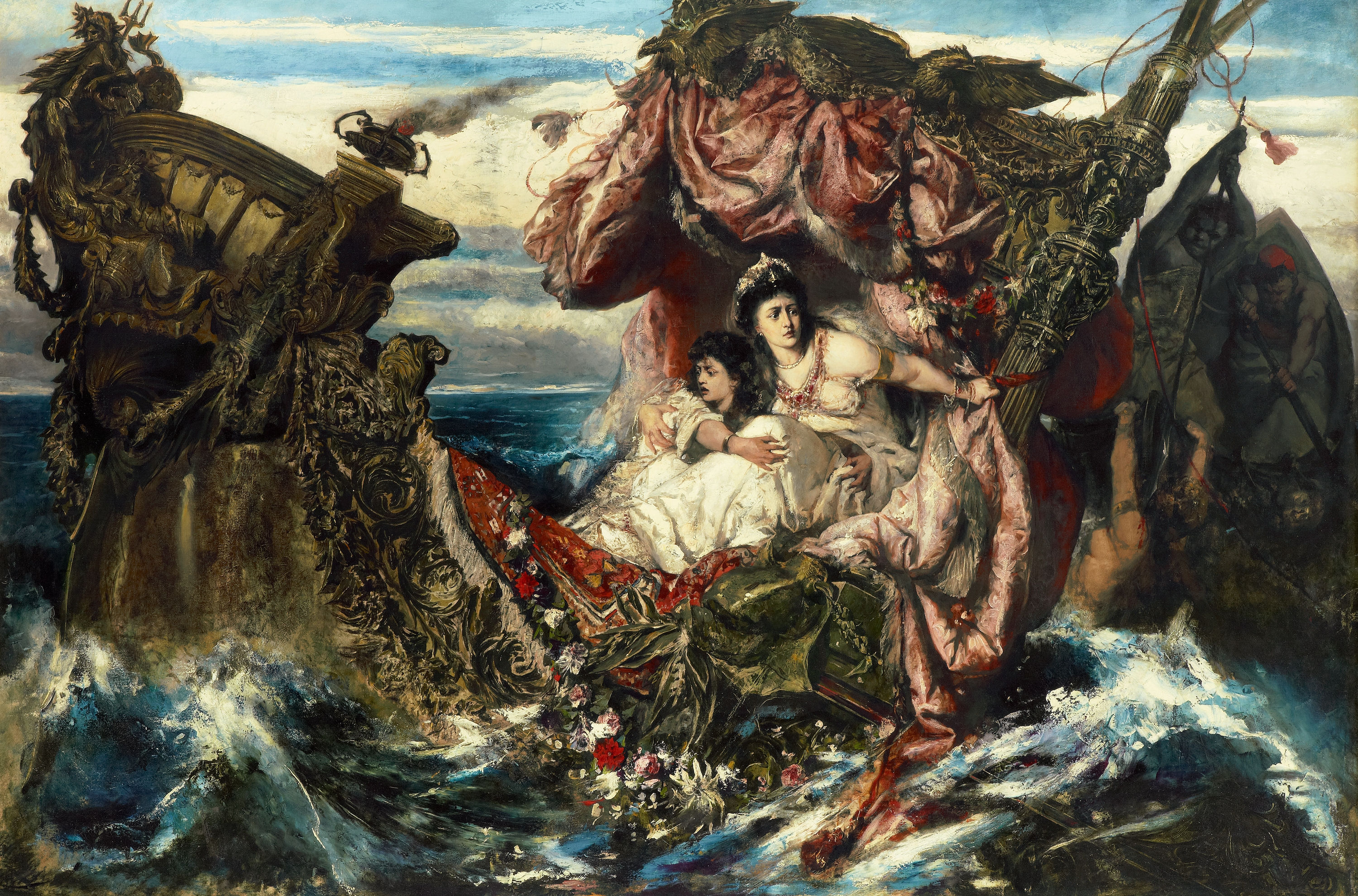Acerronia Polla on:
[Wikipedia]
[Google]
[Amazon]
 Acerronia Polla was a servant and friend of
Acerronia Polla was a servant and friend of
 Acerronia Polla was a servant and friend of
Acerronia Polla was a servant and friend of Agrippina the Younger
Julia Agrippina (6 November AD 15 – 23 March AD 59), also referred to as Agrippina the Younger, was Roman empress from AD 49 to 54, the fourth wife and niece of emperor Claudius, and the mother of Nero.
Agrippina was one of the most prominent ...
, the mother of Nero
Nero Claudius Caesar Augustus Germanicus ( ; born Lucius Domitius Ahenobarbus; 15 December AD 37 – 9 June AD 68) was a Roman emperor and the final emperor of the Julio-Claudian dynasty, reigning from AD 54 until his ...
. She was drowned in AD 59, when an unsuccessful attempt was made at the same time to drown Agrippina. She may have been the daughter of Gnaeus Acerronius Proculus, consul
Consul (abbrev. ''cos.''; Latin plural ''consules'') was the title of one of the two chief magistrates of the Roman Republic, and subsequently also an important title under the Roman Empire. The title was used in other European city-states thro ...
in AD 37.
Tacitus' account indicates that Agrippina the Younger
Julia Agrippina (6 November AD 15 – 23 March AD 59), also referred to as Agrippina the Younger, was Roman empress from AD 49 to 54, the fourth wife and niece of emperor Claudius, and the mother of Nero.
Agrippina was one of the most prominent ...
had set sail on a cruise on which Nero had secreted conspirators intent on killing her. Agrippina and Acerronia, along with the steersman Crepereius Gallus, were underneath a canopy on deck which had been secretly weighted with lead. At a given signal, the canopy fell, killing the steersman, but missing Agrippina and Acerronia because of the high-backed couch they had been sitting on.Tacitus
Publius Cornelius Tacitus, known simply as Tacitus ( , ; – ), was a Roman historian and politician. Tacitus is widely regarded as one of the greatest Roman historians by modern scholars.
Tacitus’ two major historical works, ''Annals'' ( ...
, ''Annals
Annals (, from , "year") are a concise history, historical record in which events are arranged chronology, chronologically, year by year, although the term is also used loosely for any historical record.
Scope
The nature of the distinction betw ...
'' xiv. 4
There had been a mechanism designed to scuttle the ship, although it malfunctioned, and the conspirators failed in their further efforts to sink the craft. Meanwhile, Agrippina and Acerronia entered the water. Acerronia called out, claiming that she was Agrippina. The conspirators struck her with poles and oars until she had either been bludgeoned to death or drowned. Agrippina, wounded in the shoulder, managed to swim to a passing fishing boat.
The account of Cassius Dio
Lucius Cassius Dio (), also known as Dio Cassius ( ), was a Roman historian and senator of maternal Greek origin. He published 80 volumes of the history of ancient Rome, beginning with the arrival of Aeneas in Italy. The volumes documented the ...
is fundamentally the same, although he does indicate that the boat was in fact scuttled, and that Acerronia drowned. He also mentions nothing about Agrippina being rescued by a passing boat, and instead claims she swam all the way to shore on her own.Cassius Dio
Lucius Cassius Dio (), also known as Dio Cassius ( ), was a Roman historian and senator of maternal Greek origin. He published 80 volumes of the history of ancient Rome, beginning with the arrival of Aeneas in Italy. The volumes documented the ...
, lxi. 13
References
Polla 59 deaths 1st-century Roman women 1st-century Romans Year of birth unknown {{AncientRome-bio-stub